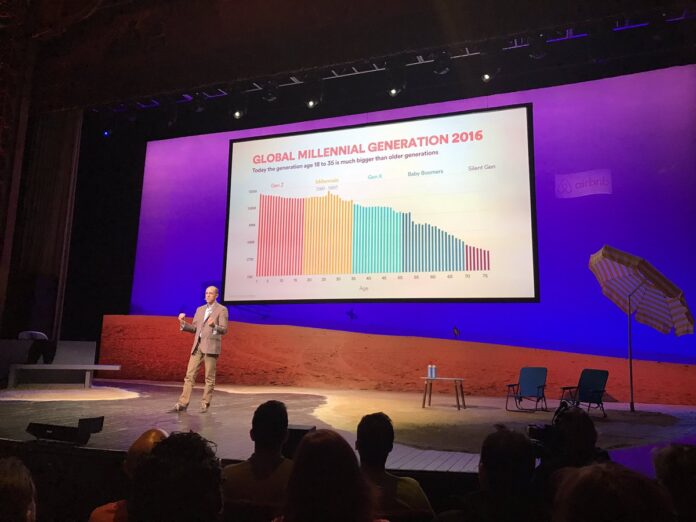By Lumos Business – January 14, 2017
The global sharing economy is taking flight. The exponential growth in the sector, globally, is being driven by the desire for access versus ownership.
The global sharing economy is taking flight. The exponential growth in the sector, globally, is being driven by the desire for access versus ownership.

According to PWC’s ‘Sizing the Revenue Opportunity’ report in 2014, the global sharing economy (Sh) accounted for approximately 6.25%, or $15bn, of total sector revenue compared to the traditional rental economy (Tr) in an array of sectors, comparing car sharing (Sh) versus car rentals (Tr) for example.

+ PWC: Sizing the Revenue Opportunity
By 2025, total sector revenue from the sharing economy is expected to reach 50%, or $335bn, when compared to traditional rental economy. This exponential increase in revenue will be driven by several factors, including:
- the rise of the millennial generation
- the platformization of the global economy
- increasing asset prices and decreasing wages/job security
- new trust mechanisms that will facilitate P2P (peer to peer) commerce
Sharing Economy Sectors
On a sector-by-sector basis, PWC collected platform transaction and revenue data for the following major sectors in the UK, a hub of sharing economy activity, in 2016:

+ Outlook for the Sharing Economy
On a sector-by-sector basis, PWC projects the following revenues by 2025 in the UK:

+ Outlook for the Sharing Economy
We can see that the majority of platform revenues in the UK currently comes from P2P Transportation (38%), P2P Accommodation (27%), and Collaborative Finance (16%) from a total revenue pie of £1bn.
Going forward to 2025, we can see that the share of the pie is projected to increase to £18bn in total revenues, with P2P transportation, P2P accommodation, and on-demand household services having the greatest slice of the pie.
Trust + Experience Quality Drives the Sharing Economy
According to PWC’s Consumer Intelligence series on the sharing economy, the two most important elements are:
- trust
- quality of experience

Therefore, it is imperative that enterprises focus on maintaining quality control over the experience, building trust with customers, and designing mechanisms in the product for people to share their experiences with others.
French-based BlaBlaCar is considered to be the poster child of these attributes in the global sharing economy and has their own metrics of trust:

They have designed the ‘D.R.E.A.M.S.’ framework for creating trust on the platform:
This data demonstrates that is is possible to create digital mechanisms of trust and facilitate commerce between ‘strangers’ in all sectors of the sharing economy.
Market Bets on Millennials
Airbnb has made their big bet behind Millennials as part of their recent launch of ‘Experiences,’ an ambitious endeavour that will facilitate the booking of the whole trip experience, from end to end, on their mobile app:

‘80% of young people want to spend their money on experiences not things’ @jowyang from Airbnb Open 2016
Airbnb expects millennials to be 75% of travelers by 2020, as they are now the largest generation in the world. Globally, we can see that millennials are the most likely to participate in the sharing economy:

However, since there are two sides to any platform, it is important to be inclusive in both design and execution for all generations. Sectors such as collaborative finance, P2P accommodation and on-demand services can tap into different knowledge, skills and asset pools from the older generations and help members of the younger generation gain access to wisdom, mentoring, capital and new experiences.
The global sharing economy is set to explode over the next decade, driven by the desire for access to enriching experiences and entirely new models of transport, commerce and living.
Analysis – This article will be very informative to my research as it highlights data driven forecasting for economic shifts toward a shared economy model going into future decades. It also provides a close look at the demographic breakdown with regards to adoption of a shared economy mindset, while describing what factors contribute to the shift. A key point of interest outlined is the direction towards experience-driven spending, versus ownership-motivated consumer behavior. These insights will prove valuable in terms of understanding the business and economic factors at play in the evolving consumer mindset.




